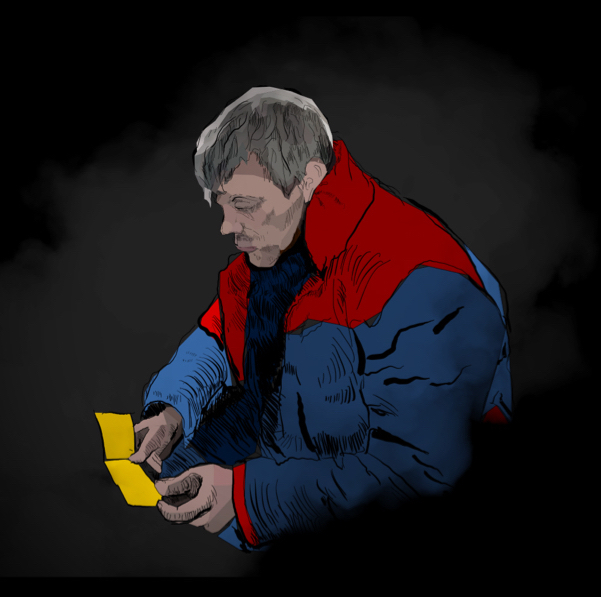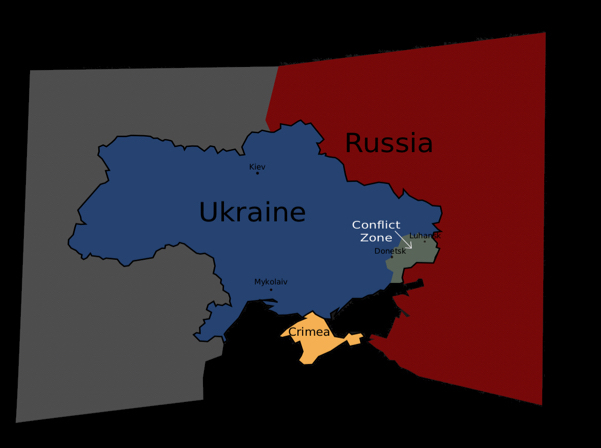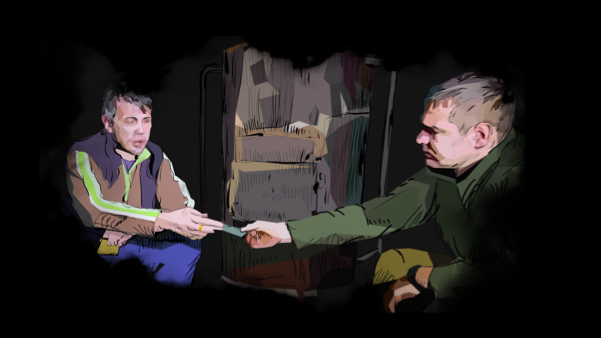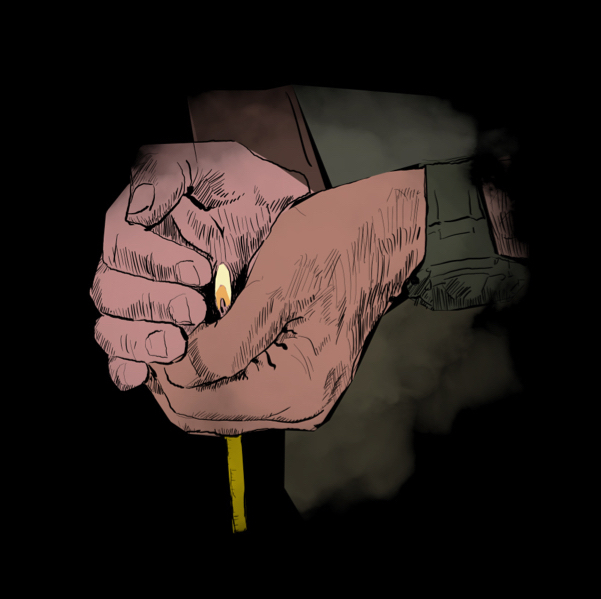Gallery
A Different Kind of Olympics
In a sports-driven country, a local Brazilian pastor partnered with Athletes in Action® to take the gospel to nearby neighborhoods during the 2016 Olympic Games.
January 2018
Zhenya watches.
Men whirl around him in controlled chaos. A haze of dust and grit clouds the air with the explosion of each artillery shell. Soldiers return fire through windows, then hit the cold floor for cover.
Zhenya leans against a trembling wall in the corner. His face is tense and weathered, as if bearing the weight of his nation’s turbulent past. His lips move slightly through heavy breathing, and his bright blue eyes are locked forward.
The soldiers glance toward this man who doesn’t seem to belong. Instead of the drab, olive-green fatigues of the soldiers, he wears a puffy blue parka and jeans.
As the battle rages and rockets scream overhead, Zhenya, the chaplain, continues praying.
When Zhenya joined the Ukrainian marine unit a few days prior, several soldiers bluntly explained what he should expect.
“We want you to know that what you’re going to tell us, we’re not interested in,” one said. “We don’t want to hear about Christ from you. Do you understand?”
Zhenya swallowed hard and told them he understood.
He could have left, concluding the spiritual door to this unit was shut. But he remained, respecting their lack of interest, yet without silencing his faith. He did the only thing he felt he could: pray.
Three days later, the commander asked, “Chaplain, what kind of person are you?”
“What do you mean?” Zhenya replied, confused.
“During these last three days I’ve learned more about your Christ than I’ve ever heard before.”
God was directly answering the chaplain’s prayers for openness to Jesus. So in the following days, Zhenya seized the opportunity to talk to the commander about life in Christ.
Then the mortar fire came.
In November 2013, Ukraine’s president Viktor Yanukovych backed away from a planned agreement of association with the European Union and instead allied with Russia. A groundswell of protests followed, which were only strengthened when police tried to quell them with force. A revolution was underway.
The president fled and Russian soldiers appeared, first in the Crimean peninsula and then in Eastern Ukraine, areas sympathetic to Russia.
By the second half of 2014, Russian troops and local insurgents had taken control of two of Eastern Ukraine’s largest cities, Donetsk and Luhansk. Ukraine’s new government sent in troops, and the conflict escalated.
At the time, Zhenya had been pastoring a church in Mykolaiv, a city near the Crimean peninsula. When the unrest began, one-third of the soldiers stationed in Crimea relocated to Mykolaiv as refugees.
Zhenya and other Christians provided these soldiers with food and other basic needs. Their love opened doors for relationship and for sharing the gospel.
The war has brought much hardship and uncertainty but has also sparked a spiritual awakening.
The war has brought much hardship and uncertainty but has also sparked a spiritual awakening.
Cru staff members in Kiev, Ukraine’s capital city, joined other ministries and churches in sharing the gospel with thousands during the months of protests. Nearly 1.5 million refugees have left the war zone in the east for safer conditions in western Ukraine and are hungrily responding to the message of Jesus as believers care for their needs.
One university’s administration even invited Cru staff members and Christian students to meet with student refugees on campus, saying, “These students are asking us questions that we can’t answer. We need your help.”
Ukraine’s Cru ministry has given away thousands of blue and yellow ribbons emblazoned with the phrase “Pray for Ukraine.” And as the people are moved to pray for their nation, many are finding hope and strength in a new relationship with Jesus.
As tensions mounted, many of these soldiers left for the war zone in the east. Zhenya wanted to go with them to help. After arriving, he quickly observed that he and other chaplains were greatly needed.
The government then put out a call for volunteer army chaplains, and Zhenya’s ministry became officially sanctioned.
Zhenya was once a soldier himself, 25 years ago, in the waning days of the Soviet Union. He had a good military career. While advancing toward becoming a captain, a New Testament somehow ended up in Zhenya’s hands. Reading the Bible transformed him.
He actively discussed his newfound faith, a risky move in the Soviet Army. The government was on the lookout for Christians within army ranks. When they found Zhenya, he was discharged.
Years later, during his time as a pastor, Zhenya partnered with the Cru® campus ministry in Ukraine. Recently he joined the ministry as an intern, and his status as a chaplain has enabled Military Ministry to become the seventh distinct Cru ministry in the country. Military chaplains didn’t exist before this war.
He’s now able to put the same New Testament into Ukrainian soldiers’ hands. And he uses the same materials that he used on campus, along with a few other resources, like the JESUS film, to talk about Christ with men on the battlefront.
The marine unit endured the intense shelling without injury. The soldiers curiously watched Zhenya pray and maintain calm in the face of the battle. He won their trust, and the soldiers accepted him as one of their own.
“Chaplains are in such a unique place,” Zhenya says. “They can give hope in Jesus and supply the most reliable bulletproof vest: one for the soul.”
Back at the barracks, Zhenya sits with two soldiers on wooden crates in front of a blackened cast iron stove. Each holds a yellow copy of the Four Spiritual Laws booklet, which explains the gospel. In contrast to their vocal disinterest when Zhenya first arrived, the soldiers now listen intently to what he has to say.
“There is one reason that God will listen to our prayers,” he says before reading the Cyrillic text that expresses Law Three: Jesus Christ is God’s only provision for our sin. Through Him we can know and experience God’s love and plan for our life.
“Even though published many decades ago, the Four Spiritual Laws happens to be the most relevant thing in this time of war,” Zhenya says.
Zhenya spends two to three weeks at a time with soldiers on the frontlines. As his piercing blue eyes look across the battlefields and the enemy amassed beyond them, he doesn’t see Ukraine crumbling into wreckage. He sees hope.
“This crisis is causing us to find our national identity, to be reborn as a nation,” Zhenya says. “But most of all, it is awakening them to their need for God.”

Jason writes for The Communications Group of Cru®. He served as a team leader for Cru’s campus ministry in Pittsburgh for seven years. He has one wife, three kids, and an embarrassing number of brain cells reserved for the Pittsburgh Pirates.
Contact Me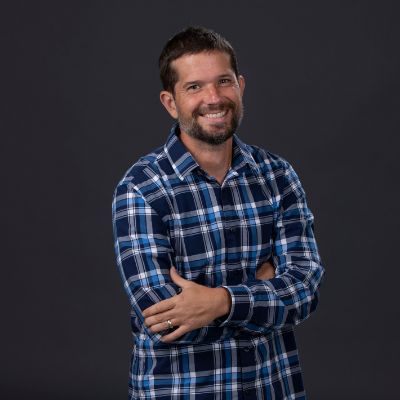
Philip is a soccer coach, freelance writer, and illustrator. He earned a master’s degree in Christian studies at Regent College in Vancouver, British Columbia. Philip balances family life along with bike riding, drawing and whittling toy cars.
Contact Me